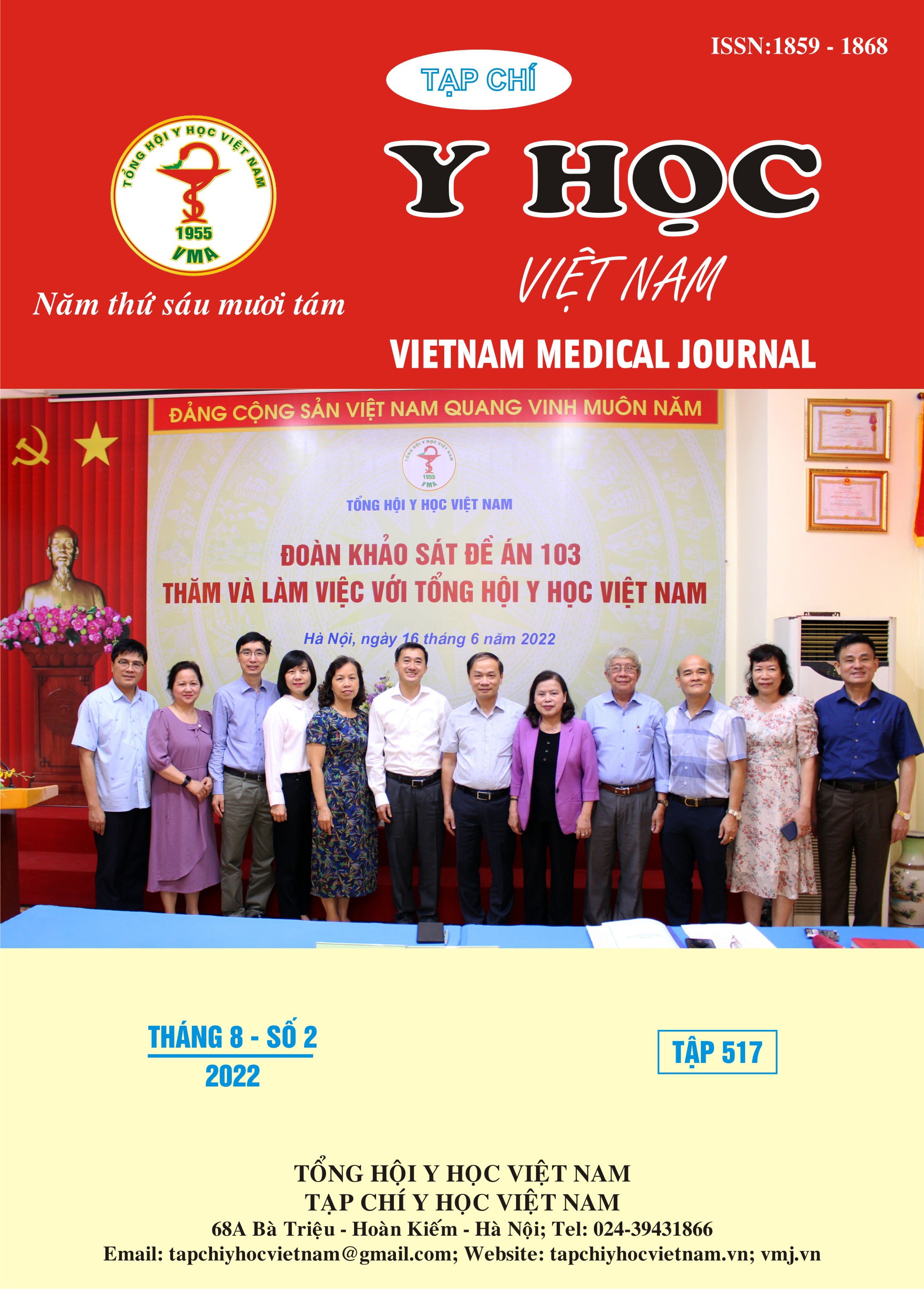RESULT EVALUATION OF LONG-TERM LOW-DOSE MACROLIDE ANTIBIOTIC TREATMENT IN CHRONIC RHINOSINUSITIS WITH POLYP AFTER ENDOSCOPIC SINUS SURGERY
Main Article Content
Abstract
Objective: Result evaluation of long- term low- dose Macrolide therapy in patients with chronic rhinosinusitis with polyps after endoscopic sinus surgery. Methods: Opinion overview, we used data from Pubmed, Cochrane and Embase to evaluate the results of long-term low-dose Macrolide therapy in reducing polyp recurrence in patients with chronic rhinosinusitis with polyp after endoscopic sinus surgery. Results: There are 7 studies, in which 5 are randomized controlled trials and 2 are prospective studies with pre and post – treatment comparisons with 448 patients in this review, of recent 10 years duration. The antibiotics used in the studies are Clarythromycin and Azithromycin, half- dose and lasting 4 to 24 weeks; There are 6 studies showed improvement in the SNOT 20/22 scale with p< 0.05; 5 studies found an improvement in the endoscopy scale of Lun – Kenedy with p < 0.05; only two studies evaluated by CT Lund- Mackay scale showed improvement with p< 0.05; four studies evaluating tissue eosinophil presence, serum IgE, and Nasal secretion found whether macrolide therapy is effective in the patients with low IgE. Conclusion: the results of long-term low-dose macrolide therapy in patients with chronic rhinosinusitis with polyps after endoscopic sinus surgery improved quality of life as well as reduced polyp recurrence, especially in patients with low IgE.
Article Details
References
2. Lin CF, Wang MC, Merton AT, et al. Add-on effect of clarithromycin to oral steroids as post- operative therapy for chronic rhinosinusitis with nasal polyps: a randomised controlled trial. Rhinology. 2020;58(6):550-558.
3. Maniakas A, Asmar MH, Renteria AE, et al. Azithromycin in high-risk, refractory chronic rhinosinusitus after endoscopic sinus surgery and corticosteroid irrigations: a double-blind, randomized, placebo-controlled trial. Int Forum Allergy Rhinol. 2021;11(4):747-754.
4. Perot B, Baban M. The Role of the Macrolide in Preventing Recurrence of the Nasal Polyposis after Fess. Pak J Med Health Sci. 2021;14.
5. Sireci F, Speciale R, Gallina S, Sorrentino R, Canevari FR. Clarithromycin in the Management of Chronic Rhinosinusitis: Preliminary Results of a Possible Its New Use. Indian J Otolaryngol Head Neck Surg Off Publ Assoc Otolaryngol India. 2018;70(1):87-91
6. Varvyanskaya A, Lopatin A. Efficacy of long-term low-dose macrolide therapy in preventing early recurrence of nasal polyps after endoscopic sinus surgery. Int Forum Allergy Rhinol. 2014;4(7):533-541.
7. Zeng M, Wang H, Liao B, et al. Comparison of efficacy of fluticasone propionate versus clarithromycin for postoperative treatment of different phenotypic chronic rhinosinusitis: a randomized controlled trial. Rhinology. 2019;57(2):101-109.


